by Mike Mallick
In the movie Field of Dreams, Kevin Costner is told to “build it and they will come.” On Rose Street, in the heart of East Waco, we have dreams big enough to fill a field: Dreams of proud families. Dreams of a proud history. Dreams of heroes. On Rose Street, dreams don’t come true; dreams are true. The heroes on our street built the Rose Street Path of Pride, Vision, and Justice to celebrate the greatness of humanity, the greatness of a neighborhood, and the greatness of dreams. “Build it for they have come.”
The Rose Street Path is a labyrinth, a walking path where the shade cools, the birds sing, and the route twists and turns in ever intriguing and unexpected directions, like the path of life itself. The greatness of humanity is that life is always complete, yet always advancing at the same time. As you walk along the path, your life is already complete, already heroic, and already successful, and yet each step brings about even more success. At the very center of the path is the place of completion, a place to relax on a shaded park bench and celebrate your life, a life of success, accomplishment, and gifts. It’s the place where your heroes stand proud of you each and every step of the way. Heroes you know, and heroes you don’t know. The hero within each and every one of us. God, the greatest hero of all.
Pride is having the whole world in front of you and heroes behind you. Being proud means that you lift people up without exception, no matter what, even when it hurts. On Rose Street, we don’t just talk about pride, we live it. We’re proud of parents. All of them. We’re proud of neighbors. All of them. We’re proud of you. All of you. And we’re proud no matter what. Being proud means knowing that there’s always someone standing behind you who’s proud of you. Always. Even when you don’t see it. On Rose Street, we have the courage to turn around and see who’s behind us. We have the courage to have heroes. We have the courage to Stand Proud.
Vision is the knowledge that the whole world in front of you is your gift to the heroes behind you. Our heroes (and God, the greatest hero of all) can know everything about us except one thing: They can’t know that they’re more important to us than the path before us, whatever that path may be, until we acknowledge them. On Rose Street, we turn around and look our heroes in the eye. We know that every glance behind us is a triumph over every sight in front of us. Every single one. There’s no such thing as an unsuccessful day. There’s no such thing as an unsuccessful life. Everything we do is a gift to God, to our heroes, and to the hero within us all. Everything. That’s what life is all about.
Justice is the knowledge that life is always greater than where you are, and love is always greater than who you are. Justice is standing behind all, bearing the burdens of all, in order to lift all. In the same way that life is always complete, yet always advancing, injustice has already been overcome, yet is daily being overcome. That’s simply what families do, and on Rose Street, we’re all family. Our family is our neighborhood, our city, and our world. Our family is you. On Rose Street we have the courage to lift up everyone, the just and the unjust, even when it hurts, in order to fight injustice every step of the way. We don’t talk the talk. We walk the walk. And we lift a whole city.
Walk with us and stand with us at this place of heroes! The Path is always open, and is located at 311 Rose Street, 3 blocks off Elm Avenue, on the right side of the street. Rose Street intersects Elm at Tony DeMaria’s BBQ, just past the East Waco Library. Please visit our website at www.riversidepride.org to share your dreams and share your walk! At the Rose Street Path, we stand proud. We walk proud. We make dreams come true.
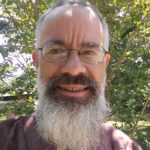 Mike Mallick is a Wacoan who stands behind everyone in the city, except in the realm of beards. He works with individuals, companies, and charities to build impact, strategies, and dreams.
Mike Mallick is a Wacoan who stands behind everyone in the city, except in the realm of beards. He works with individuals, companies, and charities to build impact, strategies, and dreams.
The Act Locally Waco blog publishes posts with a connection to these aspirations for Waco. If you are interested in writing for the Act Locally Waco Blog, please email [email protected] for more information.
By Natalie Garcia
It would be hard to miss what’s been in the news lately.
- The outrage over a Stanford student who received a six-month jail sentence for a rape conviction.
- Baylor University firing both its president and football coach, over an investigation showing a “fundamental failure” to appropriately respond to sexual assault incidents.
- The widespread belief that dealing with online harassment is now an inevitable part of trying to find love.
Even when the Young Adult book series Twilight first came out, it was quickly criticized for its depiction of teen relationships as glamorizing abuse, control, and manipulation.
Sometimes when we consider domestic violence, we fail to think about how a relationship might have gotten there in the first place, so let’s go a little further back – before moving in together, before marriage, before all those “relationship milestones” that come to mind.
Do you remember what you thought dating was supposed to be like, when you first started dating? Maybe you were in your early teens, maybe a little younger, maybe older. It was pretty scary, right? So much excitement and yet so many butterflies, and either too little advice, or way too much unhelpful advice (“Just follow your heart? What does that even mean?”).
Navigating romantic relationships can be overwhelming and confusing, and for so many teens, we simply don’t prepare them for what they can expect in a healthy relationship, or for how they can notice red flags in unhealthy or abusive relationships.
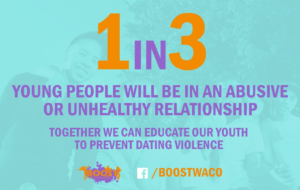 Here is the bottom line: 1 in 3 teens in the United States will be a victim of dating violence of some type – that includes physical, sexual, digital, emotional abuse, and even stalking. [1]
Here is the bottom line: 1 in 3 teens in the United States will be a victim of dating violence of some type – that includes physical, sexual, digital, emotional abuse, and even stalking. [1]
That is a rate far higher than any other type of youth violence in the U.S.
Can you imagine what might happen to the rate of domestic and dating violence in our communities if every teen knew what a healthy relationship looked like (long before they started dating!), and knew that they deserved to have one?
If that’s what we’re reaching for, what can you do to help the teens in your life be prepared to meet the challenges of dating head-on?
- Be a role model for equality, respect, and positive communication in your relationships.
- Increase your comfort level with openly discussing dating and dating violence. Easier said than done, right? But – it’s so worth it, because your comfort in sharing on such a difficult subject will make teens more comfortable too, and can decrease the stigma that comes with seeking advice on healthy dating.
- Encourage critical thinking on dating myths and gender stereotypes. Remember: Abuse is NEVER normal, and it is NEVER the victim’s fault.
- Listen! Be a safe place where teens know they can come to when they need to work through their struggles, and not be judged, lectured, or stigmatized.
- If you or someone you know is looking for help regarding an abusive relationship, you can always contact the Family Abuse Center at 1-800-283-8401.
What’s the most important thing you can take away today? Your example matters. Show the youth in your life that they deserve a healthy, loving, respectful relationship.
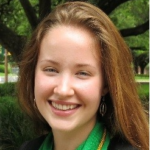 Natalie Garcia is a recent Baylor social work graduate. She and her husband have been stationed at Fort Hood since 2014. She loves science fiction and stand-up comedy. She has rescued two cats in the last six months, and thoroughly expects even more cats to find her in the future.
Natalie Garcia is a recent Baylor social work graduate. She and her husband have been stationed at Fort Hood since 2014. She loves science fiction and stand-up comedy. She has rescued two cats in the last six months, and thoroughly expects even more cats to find her in the future.
The Act Locally Waco blog publishes posts with a connection to these aspirations for Waco. If you are interested in writing for the Act Locally Waco Blog, please email [email protected] for more information.
Notes:
[1] LoveIsRespect.org. Dating abuse statistics. (http://www.loveisrespect.org/resources/dating-violence-statistics/)
By Beth Armstrong
Over the past week, I have scrolled through hundreds of Facebook posts about my friend’s children and their first day back to school photos. It’s one of my favorite times of the year seeing all of the excitement and hope about the year ahead in the eyes of these children: bright, smiling faces holding up signs about what they want to be when they grow up – all dressed up in their new school clothes and with freshly cut hair. As a mom of two little ones myself, how does that not pull at the heart strings just a little bit? One of the things we know of that helps prepare children for a terrific school year is the opportunity to read at home. And, one of the things that helps establish a life-long love of reading is the opportunity to own some books of your very own. The women of the Junior League of Waco want to help make that opportunity available to every child in Waco!
Three years ago, the Junior League of Waco began the process of selecting a single community issue to focus our efforts and resources upon. The 200 plus members chose Early Childhood Education & Development for children ages 0-3 in McLennan County to be the singular area we wanted to improve. We committed for the next 10 years to developing and expanding programs where gaps existed within the current system and establishing successful partnerships where effective collaboration and teamwork could begin. Andrew Carnegie once said, “Teamwork is the ability to work together toward a common vision. The ability to direct individual accomplishments toward organizational objectives. It is the fuel that allows common people to attain uncommon results.” As the Junior League of Waco begins a new League year focused on impacting Early Childhood Education and Development for children ages 0-3, I can think of no better quote to represent the influence that the women of the JLW are having in this targeted initiative.
We have a rich and historical tradition of giving large gifts back to our community over the past 80 years. Whether you visit Anniversary Park in Cameron Park, the refurbished Carousel at the Lion’s Park Kiddieland, or the Butterfly Gardens in the Cameron Park Zoo, there are glimpses across this city of the tireless efforts made by the women of the JLW to improve the lives of the women and children who live here. As we enter into our 80th Anniversary year, we are honored to continue this legacy by gifting the Family Health Center a check for $80,000 to fully fund the return of Reach Out and Read to the children and their parents of Waco. This initiative will put a developmentally appropriate books into the hands of every child ages 6 months-5 years who enters the doors of a Family Health Center clinic during each well-child visit.
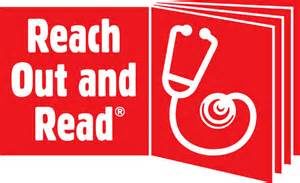 Reach Out and Read began in 1989 at Boston City Hospital. It was started by clinicians, Dr Barry Zuckerman and Dr. Robert Needlman, who were working with very high risk families dealing with poverty and violence in challenging school systems. Together with early childhood educators Jean Nigro, Kathleen MacLean, and Kathleen Fitzgerald-Rice, they introduced the first Reach Out and Read Program at Boston City Hospital (now Boston Medical Center). Dr. Needlman found that parents who are given books and literacy guidance are four times more likely to report reading aloud at home. In 5 short years, this successful program had spread to more than 34 programs in 9 states distributing almost 20,000 books. Now in its 27th year, Reach Out and Read is available in almost 6,000 sites in all 50 states and distributes more than 6.5M books to more than 4.5M children.
Reach Out and Read began in 1989 at Boston City Hospital. It was started by clinicians, Dr Barry Zuckerman and Dr. Robert Needlman, who were working with very high risk families dealing with poverty and violence in challenging school systems. Together with early childhood educators Jean Nigro, Kathleen MacLean, and Kathleen Fitzgerald-Rice, they introduced the first Reach Out and Read Program at Boston City Hospital (now Boston Medical Center). Dr. Needlman found that parents who are given books and literacy guidance are four times more likely to report reading aloud at home. In 5 short years, this successful program had spread to more than 34 programs in 9 states distributing almost 20,000 books. Now in its 27th year, Reach Out and Read is available in almost 6,000 sites in all 50 states and distributes more than 6.5M books to more than 4.5M children.
Andrew Carnegie must’ve had the collaborative efforts of the Junior League of Waco, Family Health Center and Prosper Waco in mind when he said “teamwork is the ability to work together toward a common vision.” This common vision started at the close of the last school year during a fortuitous meeting with the League’s former President, Ellen Derrick, CEO of Family Health Center Dr. Ronald Goeritz, and members of Prosper Waco and their kindergarten readiness working group. While most of our kids were out enjoying the summer break when reading books wasn’t a requirement, the members of this great team have been hard at work with the common objective of getting books into the hands of all kids and to reach uncommon results in the improvement of literacy for ALL of our children.
I know in a few weeks, we’ll have gotten back into our normal routines and will be fully engulfed in the busyness of a new fall school year, but I’d like to invite you to come and join with us as we officially kick off the Reach Out and Read program on Monday, September 26 at 3:30pm at the Family Health Center’s Tom Oliver South 18th Community Clinic (1800 Gurley Lane) where we’ll be celebrating the Junior League of Waco’s 80 years of commitment to this community.
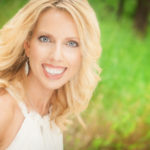
Beth Armstrong has been a member of the Junior League of Waco for 13 years. She now serves as President of the Junior League in addition to her fulltime job. She’s married to Chris, and they have 2 kiddos: Hunter who is almost seven and Ella who just turned two.
The Act Locally Waco blog publishes posts with a connection to these aspirations for Waco. If you are interested in writing for the Act Locally Waco Blog, please email [email protected] for more information.
By Lucas Land
Sustainable is one of those words you hear more and more, but seem to know less and less what it really means. Like “organic”, “green” or “eco-friendly”, sustainable is sometimes applied to products or things that don’t make sense. Can beauty or cleaning products really be called sustainable if they depend on non-renewable resources for packaging or any part of their product? Something can only be called “sustainable” if it does not deplete the resources (from raw materials to packaging to end of life) on which it depends.
In addition to “sustainable” often being used as an advertising gimmick, let me suggest that it is not enough to create a livable future. 70% of the planet’s topsoil, the layer allowing plants to grow, is gone. We are losing topsoil between 10 to 40 times the rate at which it can be replenished. [1] According to the Minerals Education Coalition every citizen of the United States born will use 3.11 million pounds of minerals, metals and fuels in their lifetime including copper, coal, salt, gold, zinc, bauxite and other minerals. [2] Global energy consumption is projected to continue to increase 48% by 2040, yet the U.S. Department of Energy estimates that it takes 300 million years for fossil fuels to form. [3] [4] Our appetite for these energy dense hydrocarbons goes way beyond nature’s ability to form them.
So, you see, the problem is that we are already operating at an incredible deficit and sustaining the current status quo is not enough. What is required for a sustainable future are regenerative systems that work with, rather than against, nature, and that restore the resources and ecosystem services on which we depend. This means rethinking our current systems and ways of life, as well as building new systems with a different set of principles.
This rethinking must include a deeper understanding of what nature provides us and how to protect our particular ecosystem in the Brazos Watershed. It must also provide for the people that live here. We are a part of nature. Although we are capable of the most detrimental effects on the ecosystem, we still have to provide for human needs with these new systems. However, the new systems must find ways to limit what we take from the earth and provide for the needs of everything equally in our community, both human and non-human.
I can hear someone thinking, “That sure sounds nice, but what does it look like in practice?” Glad you asked! Let me give you a couple examples, one big and one small.
First, on a large scale we can look at Waco and McLennan county and ask what are the resources in our bio-region that can help us become more resilient and less dependent on unsustainable practices and resources. The Waco Downtown Farmers Market (http://www.wacodowntownfarmersmarket.com/) has provided a rich environment for local producers to grow their businesses. Many of these, such as Heritage Creamery, source their ingredients and raw materials from other local producers. This helps grow and strengthen our local economy which in turn makes us more resilient as a community.
On a much smaller scale, we can each think about the spaces around the places where we live. For too long the American lawn has served one primary purpose: to be greener and more beautiful than the neighbors. In pursuit of this goal homeowners pour on 10 times more pesticide per acre than conventional farmers in the U.S. [5] Landscape irrigation accounts for one-third of all residential water usage, totaling nearly 9 billion gallons per day. [6] In fact, lawns are the largest irrigated crop in the U.S. covering more acreage than corn, wheat, or soy. [7]
On the other hand, yards are great places to grow food, raise chickens, plant native plants, provide habitat for birds and wildlife, as well as look beautiful and provide space to play and relax. Many plants and trees can serve more than one of these purposes at a time. My rule is that if you have to water it, you should be able to eat it! Rain gardens can be used to better manage storm water and runoff from downspouts and other areas. You can learn more about how to make your lawn more sustainable by getting involved with the HOT Urban Gardening Coalition , McLennan County Master Gardeners and HOT Master Naturalists.
It will take all of us working to change the way we think about our individual choices and the systems that provide both the food, gadgets and transportation we depend on in order to move beyond sustainability to a future where our ecosystem has been restored and our lives work with rather than against nature.
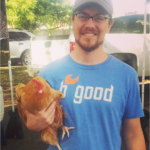 Lucas Land is an eco-theologian, urban farmer, activist, aspiring master naturalist, facilitator, musician, and writer. He is avoiding growing up by constantly learning and trying new things. He also works in Grants Management for Waco ISD. He lives with his wife, three children, flock of chickens, dog, and cat in the Sanger Heights Neighborhood in North Waco.
Lucas Land is an eco-theologian, urban farmer, activist, aspiring master naturalist, facilitator, musician, and writer. He is avoiding growing up by constantly learning and trying new things. He also works in Grants Management for Waco ISD. He lives with his wife, three children, flock of chickens, dog, and cat in the Sanger Heights Neighborhood in North Waco.
The Act Locally Waco blog publishes posts with a connection to these aspirations for Waco. If you are interested in writing for the Act Locally Waco Blog, please email [email protected] for more information.
Notes:
[1] “What If the World’s Soil Runs Out?” in Time Magazine Dec. 14, 2012 (http://world.time.com/2012/12/14/what-if-the-worlds-soil-runs-out/)
[2] http://www.mineralseducationcoalition.org/mineral-resource-statistics
[3] http://www.eia.gov/forecasts/ieo/
[4] http://www.fe.doe.gov/education/energylessons/coal/gen_howformed.html
[5] https://www.fws.gov/raleigh/pdfs/Homeowners_Guide_Frogs.pdf
[6] https://www3.epa.gov/watersense/pubs/outdoor.html
[7] http://earthobservatory.nasa.gov/Features/Lawn/lawn2.php
by Cuevas Peacock
I fell in love with Waco somewhere in between Elm and Austin Avenue. Perhaps it was while grabbing a bite to eat at Xristos Café, and then dessert at Hey Sugar. Maybe it was while getting a hair cut at the Jockey Club before visiting Suit City in hopes of finding a fresh outfit to compliment my fresh cut. Or it could’ve been at the Magnolia Market amongst the thousands of visitors who had traveled miles upon miles to Waco as a result of their appreciation for a loving couple dream come true. My love for the city only grew as I expanded outside of the downtown footprint and began spending my Saturday afternoons enjoying the Bistec a La Mexicana at Rufi’s Cocina topped off with ice cream from La Nueva Michoacana. While there are number of factors resulting in Waco holding a special place in heart, the most significant will forever be its entrepreneurs.
Our city is home to a collection of go getters who refuse take for no for an answer as they work to achieve their dreams of ownership. It is a community of business owners I have grown to appreciate during my AmeriCorps VISTA year of service with City Center Waco, and that the organization seeks to strengthen. In all professions, there is an amount of training one must undergo to obtain the knowledge needed to reach the desired level of success. Doctors go to medical school; lawyers go to law school, however far too often the only training entrepreneurs receive are the lessons learned after failing. Recognizing the opportunity to provide additional readiness programs for small business owners, City Center Waco is excited to announce its adoption of a new entrepreneurial training program, the Workshop in Business Opportunities (WIBO).
WIBO is based on the idea that people with an entrepreneurial spirit can be taught how to start and grow a profitable business through a curriculum designed to provide knowledge, create networks and build capacity to access capital. The program is open to anyone, but specifically targets low-income, underserved communities including minorities, women, veterans, and the formerly incarcerated. Since its creation in 1966 WIBO has developed nearly 17,000 entrepreneurs resulting in the creation of almost 35,000 jobs in cities across the country. 75% of new businesses are up and running within a year of completing the program. For those already in business, 42% see an increase in revenue after graduating. Knowing of the program’s success nationwide, City Center Waco felt charged to bring the opportunity to our local entrepreneurs.
WIBO participants are educated by seasoned industry professionals on a range of topics relevant to the success of their business. What’s most exciting about the program is its track record in increasing a business’s ability to keep its doors open. Graduates were almost three times as likely to still be in business after five years, compared to those who fail to go through a similar training. Through the adoption and implementation of WIBO, City Center Waco will assist McLennan County area small business owners and budding entrepreneurs obtain financial success by starting, operating, and building successful businesses that develop economic power, provide jobs and improve communities.
For more information on the Workshop in Business Opportunities and ways to sign-up or contribute as a sponsor please contact City Center Waco at 254-754-8898 or via email at [email protected]
 Cuevas Peacock is a community builder with dreams of becoming a poet, for he was once told that they are life’s last true teachers. Hailing from Port Arthur, the only place where oil and water mixes, Cuevas serves as an AmeriCorps VISTA with City Center Waco. Through this role he is able to focus on two of his greatest passion’s neighborhood association’s and entrepreneurs.
Cuevas Peacock is a community builder with dreams of becoming a poet, for he was once told that they are life’s last true teachers. Hailing from Port Arthur, the only place where oil and water mixes, Cuevas serves as an AmeriCorps VISTA with City Center Waco. Through this role he is able to focus on two of his greatest passion’s neighborhood association’s and entrepreneurs.
Act Locally Waco blog publishes posts with a connection to these aspirations for Waco. If you are interested in writing for the Act Locally Waco Blog, please email [email protected] for more information.
by Rachel Lynne Wilkerson
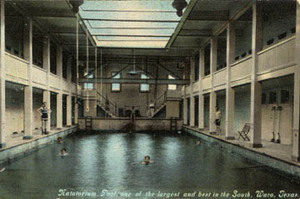
1910 post card showing the artesian-fed pool at the Natatorium Hotel in Waco.
Spectators familiar with the BSR Cable Park’s rise to internet celebrity a few summers ago might be surprised to learn that Waco has been a destination for water activities for a century. Before lazy rivers and slides that launch swimmers into the air, the Waco Natatorium built by Confederate army veteran Robert B. Parrotton at 4th and Mary Ave. offered mineral waters and baths. The indoor pool enticed bathers from all over to travel to Waco for a dip long before Waco was a viral water slide sensation.
Pools are critical gathering places for children and families in the summer months when school is out of session. They provide employment opportunities for older children, recreational activities for the whole family. A recent UK study found that swimming provides a positive boost on well being comparable to going to the library or playing music. Swimming is good for our physical, emotional, and social well-being. Additionally, public pools and baths in Waco and beyond have always played a tremendous role in creating community space. The ancient roman baths are the modern day equivalent of community centers—a place for lively discussion and a healthy exchange of ideas.
With these benefits in mind, I’d like to pose a question: why doesn’t Waco have more public pools?
This was one of the first questions I asked moving back to Waco three years ago. While the options for high-flying (and high-priced) water parks abound, I couldn’t find very many public places to swim laps. The public options seemed limited to the local Ys with limited time tables. The Center at Columbus Avenue Baptist Church, built in an old Y, offered an indoor pool at the odd length of two thirds of the standard competition dimensions. No city pools were in sight.
City officials have given various explanations for the closing of the pools: outdoor swimming pools are out of vogue, city-operated swimming pool usage is too low, refurbishing the pools would require raising taxes, splash parks are the best substitute. And yet, the absence of public pools is increasingly noticeable and a real loss as high summer in Central Texas continues.
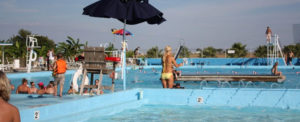 Waco’s strained relationship with public city pools, and its history of valuing big ticket amusement water parks echo underlying tensions across neighborhoods in the city. Residents informed me that Waco closed all of its public pools over the last two decades. The last pool closing is well known as the site for Hawaiian Falls. Whatever their cost constraints for traditional outdoor pools, The City of Waco contributed 2.5 million to the construction of Hawaiian Falls. For those unable to travel to the park or pay the entrance fee, Waco offers splash parks. I do not have the numbers to substantiate the City’s claims on the sustainability of outdoor pools, but I know that pools thrive in some other mid-sized and small cities, the Playdium Pool in West for example. As a lifelong swimmer and proud Texan, I can tell you that no one, for a moment, thinks a splash park is equivalent to submerging into a chilly summer pool on a hot Texas day.
Waco’s strained relationship with public city pools, and its history of valuing big ticket amusement water parks echo underlying tensions across neighborhoods in the city. Residents informed me that Waco closed all of its public pools over the last two decades. The last pool closing is well known as the site for Hawaiian Falls. Whatever their cost constraints for traditional outdoor pools, The City of Waco contributed 2.5 million to the construction of Hawaiian Falls. For those unable to travel to the park or pay the entrance fee, Waco offers splash parks. I do not have the numbers to substantiate the City’s claims on the sustainability of outdoor pools, but I know that pools thrive in some other mid-sized and small cities, the Playdium Pool in West for example. As a lifelong swimmer and proud Texan, I can tell you that no one, for a moment, thinks a splash park is equivalent to submerging into a chilly summer pool on a hot Texas day.
The city of Waco and its residents have the chance to mend a longstanding rift. In 1964, the Waco Community Relations Committee, succeeded in desegregating all City park and recreation facilities except swimming pools. The current options for cooling off in the summer heat are geared towards a mobile segment of the Waco population—those who can pay the entrance fees and have access to transportation. Waco deserves better. To Dr. Roger Olson and other community advocates, city pools are “a local justice issue.” As Waco grapples with its history, community pools could be a step towards mending fissures in our community.
Pools aren’t cheap, but the merits of communal space, shared conversation, and a way to cool off in the summer outweigh the costs. The portrait of Waco as a water wonderland is not the whole story; our city has limited recreational options for children in the summer. Pools are a natural common space for parents and families to gather, for sun-soaked friends to exchange ideas, for each of us to meet people outside of our own ruts of social circles. Traditional city pools are vital to communities, and Waco residents, all Waco residents, deserve access to public pools.
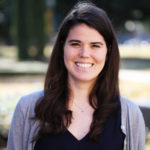
Rachel Lynne Wilkerson studies statistical modeling with an eye towards applications in the food system. A staunch advocate for pie as a catalyst for gathering neighbors together, Rachel thrives on open water swimming and front porch conversations.
The Act Locally Waco blog publishes posts with a connection to these aspirations for Waco. If you are interested in writing for the Act Locally Waco Blog, please email [email protected] for more information.
By Brett Greenfield
As a social worker the most consistent aspect of my job is that I am constantly learning something new. Something I have learned through working with families is to measure time not in months, weeks, days, or even hours, but moments. Life is filled with infinite moments that together craft stories, memories, purpose, and meaning for every one of us. These moments, whether shared with others or experienced in solitude have the capacity to change the course of an entire life, or merely pass by without the slightest hint of significance. When life is measured in moments beauty is found in the mundane, space is created for joy, sorrow, and every emotion in between, and hope is revealed amongst the darkest of times.
Working with foster and adoptive parents there is this moment for me that is always incredible. It is a moment during a phone call, just after asking a foster parent if they are willing to accept a child into their home…and they pause. This pause, sometimes seconds and sometimes seconds that seem like minutes, is nothing short of sacred. In these ever brief moments of silence, usually followed by questions about specifics and logistics, something truly remarkable takes place. The unspoken emotions of those moments are gravitas. Fear, courage, heartbreak, bravery, and compassion burst at every seam of the seemingly empty space. Moments like these are one of many that foster and adoptive parents experience that are often incomprehensible to others. These moments are also the first of many experiences between a child and a family, both of whom start out completely unknown to one another. The countless experiences that follow can be equally as unknown, and are just as sacred.
This pause is so significant because it is so familiar. Every person finds themselves at one point or another facing this same sense of the unknown, and these moments of pause take place when vulnerability is being asked of us. The unknown is such a vulnerable space, and yet is intricately intertwined with every relationship. Every family I encounter, be it the grandparents raising their grandchildren, the first time mother beginning a new journey of parenting, the foster family courageously raising a multitude of children even when that time is limited, the large family with many children, the parents of children with special needs, the adoptive families weaving together their own family story; any family with any story finds themselves confronted with the vulnerability of the unknown at many points along the journey.
The willingness families to wade deep into the vulnerability of embracing children is something I will forever cherish and admire. My hope is that I offer more than just admiration, and also provide support for this vulnerability as well. Experts in child welfare have long studied the effects of secure attachment in children. Secure attachment is something often taken for granted, until it is somehow lost. Many families find themselves confronted with the challenge of loving and embracing a child deeply in need of the nurture and care characteristic of secure attachment. Through these journeys of loving children a common thread is woven. Families seek a place for their stories to be heard and hope to be found.
The task of sharing stories and searching for hope can be daunting and intimidating, but hope has a way of making itself known. MCH Family Outreach is offering a new program for families of all shapes and sizes called Circle of Security. This 8-week small group program is designed to give parents and caregivers the opportunity to understand their story in new ways that reveal the hope already present in their lives. If you or someone you know is interested in meeting with other parents for this type of opportunity, please contact MCH Family Outreach at 254-750-1263 or email Brooke Davilla at [email protected].
Classes can be offered at a variety of locations and for groups of 8-10 parents. Examples of groups can be:
- Foster and Adoptive Parents
- Parents of small children
- Parents of older children
- Single Parents
- Parents of blended families
- Parents of children with special needs
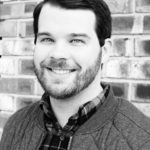 Brett Greenfield is social worker in Waco, TX. He is a graduate of the Diana R. Garland School of Social Work and currently serves as a Case Manager with MCH Family Outreach. He is passionate about working with families in the community and offering community education in trauma-informed care, attachment, and family relationships.
Brett Greenfield is social worker in Waco, TX. He is a graduate of the Diana R. Garland School of Social Work and currently serves as a Case Manager with MCH Family Outreach. He is passionate about working with families in the community and offering community education in trauma-informed care, attachment, and family relationships.
The Act Locally Waco blog publishes posts with a connection to these aspirations for Waco. If you are interested in writing for the Act Locally Waco Blog, please email [email protected] for more information.
By Craig Nash
This summer, the great people at Share our Strength provided the Waco Texas Hunger Initiative Regional Office with two Youth Ambassadors—students who helped us operate and evaluate the Summer Food Service Program. Below is a reflection on the summer from Sydney Brown, one of the students who served alongside Leah Reed. Both Sydney and Leah provided us with a wealth of energy and wisdom as we sought to improve the Summer Meal experience for Waco children.
Plans are already underway for summer 2017, and I am putting together a Child Hunger Team of volunteers from the community to begin mapping out strategies. If you are interested in serving, please email [email protected].
***
My name is Sydney Brown. I’m originally from Kansas City, Missouri and currently a Junior Public Health major at Baylor. For as long as I can remember I have been interested in how nutrition directly affects the well being of local communities. This summer I was fortunate to have the opportunity to work as a Youth Ambassador for The Texas Hunger Initiative’s Waco Regional Office, which has been a perfect mix of nutrition work and community interaction. I have had the privilege of being on the front lines of the USDA Summer Meals program and to see how hunger during the summer affects the lives of our young people. From serving meals at sites to playing with children at Summer Meals Celebration events, I have received a well-rounded look at what hunger in Waco looks like for children and what is being done to combat it.
Having worked as a Youth Ambassador last Spring in THI’s regional office, doing research on establishing meal sites, there were times when I could feel a little disconnected from the issue of hunger. But having the opportunity to actually be at the sites and to interact with the program and its participants has helped to give me a more full picture of the Summer Meals program. I have met so many incredible families that take advantage of the summer meals program, visiting with them and hearing their stories.
One of my favorite events to participate in this summer was our Summer Meals Celebration event at Brame Park in Bellmead. I have found that summer meal sites which have heavy traffic in the beginning of summer sometimes have trouble maintaining that through the duration of the program. One of our goals with the Summer Meals Celebration event was to get kids excited again about La Vega’s “Meals on the Bus” program. La Vega ISD has taken one of their school buses and converted it into a Lunch Meals Express, which transports food to areas where kids are highly concentrated and provides an air-conditioned environment for children to enjoy their lunch.
We collaborated with La Vega ISD and St. Paul Lutheran Church as well as with some of Baylor’s Campus Kitchen Americorps Vistas to provide fun games and activities for the kids. The kids were able to come out and play beanbag toss, mess around with water balloons, and try their best to win the three-legged race before eating lunch on the bus. I loved that through the games and activities this meal stop became more than just a place to get a free lunch, but now a place to come and play with friends. I got to talk to some of the families that were at the park and was told that many of them came to the park every day to enjoy lunch and had now become close friends with one another. I loved knowing that the summer meals program had brought people together as a community, not only in sharing a meal together but also in creating friendships with one another. The summer meals program has been such a joy to be a part of and I am so encouraged by it. This summer has allowed me to get plugged into the Waco community by being a part of an amazing program.
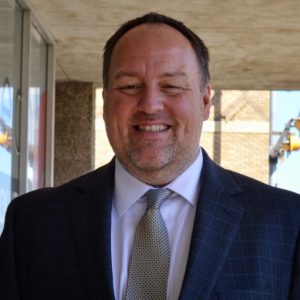 Craig Nash has lived in Waco since 2000. Since then he has worked at Baylor, been a seminary student, managed a hotel restaurant, been the “Barnes and Noble guy,” pastored a church and once again works for Baylor through the Texas Hunger Initiative. He lives with his dog Jane, religiously re-watches the same 4 series on Netflix over and over again, and considers himself an amateur country music historian.
Craig Nash has lived in Waco since 2000. Since then he has worked at Baylor, been a seminary student, managed a hotel restaurant, been the “Barnes and Noble guy,” pastored a church and once again works for Baylor through the Texas Hunger Initiative. He lives with his dog Jane, religiously re-watches the same 4 series on Netflix over and over again, and considers himself an amateur country music historian.
The Act Locally Waco blog publishes posts with a connection to these aspirations for Waco. If you are interested in writing for the Act Locally Waco Blog, please email [email protected] for more information.
(Note: This post is part of a series called “Entrepreneurs of Waco.” The series is collaboration between the McLennan Small Business Development Center (SBDC), the Professional Writing program at Baylor University, and Act Locally Waco. The McLennan Small Business Development Center offers technical assistance, business mentoring, training, and resources for all stages of small business. For more information, visit their website: www.mccsbdc.com. To see all the posts in this series, click here: Entrepreneurs of Waco. – ABT)
By Casey Froehlich
Some people spend years trying to discern their vocation, but Tonja Carpenter found herself fulfilling hers before she even knew it had a name. For fifteen years she helped mothers in her neighborhood and church community deal with life after giving birth. Then, after years of doing the work… “I found out that it wasn’t just my idea, it was somebody else’s idea already. That there was such a thing as a ‘postpartum doula’… I had never heard of that before.” She quickly got certified with the largest doula training service she could find, DONA International. From DONA she received training in “postpartum, adjustment, newborn characteristics, care, feeding, and development, and the promotion of parent-infant bonding. ” Now Tonja has her own business serving families of newborns, “Postpartum Doula Services of Waco.”
After graduating from Baylor in 1991 with her with a BBA in Finance, Tonja went on to work in the insurance industry. After getting married she traded that career for one that was even more demanding: full-time mother. Tonja and her husband Vince went on to give birth to five wonderful children who now range in age from thirteen to twenty-one.
The births of her first three children were “peachy” according to Tonja; the fourth was a different matter. Her labor stalled, eventually going on for ten hours (especially long when compared to her third birth that lasted only an hour and a half). After she gave birth she hemorrhaged which caused issues with her lactation. “I ended up just falling into a deep depression for six months,” she said of her time after birth. Luckily she had the support of her community.
“The women of my community, they weren’t called ‘postpartum doulas’ then, but they surrounded me and my whole entire family. For weeks and months they would come in and clean my house and call every day, ‘ok how ya doing?’ — bringing meals, talking through, helping with kids…It was a terrible time for my family, but it was great in that my community surrounded me and lifted us up and carried us through.”
Though that time in her life was fraught with pain and fear she still says she wouldn’t trade her experience for the world because “having the postpartum depression with my fourth child has really helped me have a greater perspective on what moms would be dealing with that are suffering with postpartum depression, and I can help them to recognize the early signs of it because I experienced it myself… It adds a great dimension to by business because I cannot just sympathize with the moms and the families but I can truly empathize because I’ve been there.”
And, it isn’t only the mother who’s affected by the birth of the new baby. “Researchers are finding that dads can suffer from postpartum depression as well because they feel just overwhelmed with what’s happening. Because it’s not just the mom, yeah the mom is the one that’s actually pushing the baby out, but she didn’t get that baby on her own… And so her partner, or her husband, or whoever, they have emotions too,” and these emotions need processing too Tonja says.
“It’s very fluid with each family and each day because every family has different needs. So really there is no typical day, it just depends on what is the need at the moment that the family needs to be taken care of….” Daily tasks range from cooking and cleaning to grocery shopping and accompanying mothers to their newborns’ doctor’s appointments. “I guess it starts with ‘how are you doing this morning?’ and then we go from there” she says with a smile.
Tonja charges for her services on a sliding scale. Doula services are typically range from seven-hundred to nine-hundred dollars for six weeks of care consisting of two to three hour shifts depending on the families’ needs. She also does pro-bono work with CareNet for mothers who simply cannot afford her services.
Breastfeeding support is one of Tonja’s specialties. “Not all postpartum doulas are breastfeeding counselors. I just happen to be an accredited breastfeeding counselor with Breastfeeding USA. I think it enhances my ability as a doula to better serve my clients,” she says. Tonja also helps run the Breastfeeding USA, Waco chapter that meets on Friday mornings at My Little Playplace, 10:30-11:30 am. It’s a free support group/cafe for breastfeeding moms. The breastfeeding counselors of this chapter will also do home visits for moms in the Waco city limits for those who can’t make it to the Friday meeting. “Being a breastfeeding counselor is also a part of the steps I am taking as I work towards my IBCLC credentials,” Tonja explains. “It stands for International Board Certified Lactation Consultant. Prayerfully, I will take and pass my board exam in April 2017.”
One memory of a client stands out in her mind: a father unsure of how to hold his newborn infant. “He was a first time dad and he had never been around babies ever, and it was just so precious watching him figure out how to hold the baby.” She laughs as she demonstrates the father’s technique – more like holding a football than a baby. “So I taught him how to do skin to skin with his baby, and you know he just fell in love—he was already in love with his baby but even more so. He was like, ‘aw this is great’ and he just wanted to hold the baby all the time! … Just seeing him learn how to interact with his baby and make it comfortable, and not be scared to touch his baby and not be uncomfortable with his baby that was beautiful.”
What is truly beautiful is the passion and compassion that Tonja Carpenter has for the families and mothers that she serves. Her wealth of experience, kindness of heart, and willingness to serve makes her the perfect fit for any household seeking aid after childbirth. Tonja’s bubbly personality and readiness to laugh is just what the doula ordered for families struggling with the post-birthing experience.
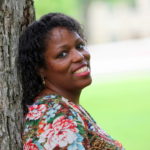 The entrepreneur…Tonja Carpenter, PCD (DONA), BC is a graduate of Baylor University with a degree in Finance. After a brief stint in the insurance industry, she married, raised and homeschooled her five children for 15 years while serving, mentoring and supporting young mothers in her church and community. She’s been married for 22 years and is a Certified Breastfeeding Counselor with Breastfeeding USA and a Postpartum Certified Doula with DONA International.
The entrepreneur…Tonja Carpenter, PCD (DONA), BC is a graduate of Baylor University with a degree in Finance. After a brief stint in the insurance industry, she married, raised and homeschooled her five children for 15 years while serving, mentoring and supporting young mothers in her church and community. She’s been married for 22 years and is a Certified Breastfeeding Counselor with Breastfeeding USA and a Postpartum Certified Doula with DONA International.
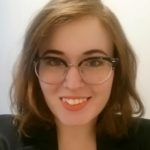 The writer…Casey Froehlich is a senior English major at Baylor University with a minor in Creative Writing. She hopes to one day work in publishing as an editor.
The writer…Casey Froehlich is a senior English major at Baylor University with a minor in Creative Writing. She hopes to one day work in publishing as an editor.
The Act Locally Waco blog publishes posts with a connection to these aspirations for Waco. If you are interested in writing for the Act Locally Waco Blog, please email [email protected] for more information.
By Ana Chatham
People often ask me how I, being born and raised in Brazil, ended up here in Waco. I usually respond with the briefest summary of my immigration story I can produce. Being a private person who normally dislikes small talk, it is comfortable for me to omit the details and just stick to the easy, pleasant stuff – all the great things that have brought me and kept me in this country: opportunities to grow as a person and as a professional. For the sake of time and efficiency, I usually leave out what I consider to be some of the most important parts of my story: the parts that have to do with faith and loss.
Although I am a person of faith, I don’t usually tell people that it was a deep sense of calling and an unexplainable peace that led me to accept an opportunity about which I knew little, in a country where I only had a few acquaintances, when I was only 18 years old. I don’t normally talk about how my faith was truly what motivated me to come to the USA and strengthened me to stay.
I also hesitate to talk about loss. But, as we all know, you can’t go anywhere without leaving somewhere behind. Yes, my immigration journey has added so much to my life – relationships and life experiences, just to name a couple of things. But it has also caused me to mourn the loss of so much – relationships and life experiences, just to name a couple of things. The greatness of what I have here doesn’t diminish the greatness of what I left behind, even if the greatness of what is left behind is only perceived by my own eyes and heart.
This February, ten years after I first arrived in the USA, I pledged allegiance to the flag of the United States of America, along with another 500 or so immigrant persons. The whole process of becoming an American citizen made me think deeply about the many immigrants I have met, mostly through my work in various non-profits. Each story is unique, yet similar in the sense that they are often themed with faith, hope, resilience, and loss, much like my own immigration journey.
In a time where the prevailing message about immigrants seems to be around what we come here to gain, take, use, and abuse, it is easy to forget what we had to leave and lose. And it is easy to forget how those choices were motivated by faith – faith in a better future, faith in the American Dream, faith in a higher power, faith in the power of hard work and sacrifice – the same types of faith the motivates non-immigrants to do what has been set in their hearts for the betterment of themselves and their families.
May we be a community that seeks to understand and honor people, local and immigrant, in the wholeness of their stories. May we listen to each other instead of the loud, often hateful, noise from our electronic devices. May we celebrate each other’s journeys and realize that though our journeys may have involved different steps, the underlying themes are often the same.
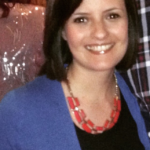 Ana Chatham is a social worker at a local nonprofit. She is also a member of the Waco Immigration Alliance and of the Latino Mental Health Coalition. When not at work, Ana enjoys spending time with her husband, her friends, and her two dogs, Crosby and Cody. She can be contacted at [email protected].
Ana Chatham is a social worker at a local nonprofit. She is also a member of the Waco Immigration Alliance and of the Latino Mental Health Coalition. When not at work, Ana enjoys spending time with her husband, her friends, and her two dogs, Crosby and Cody. She can be contacted at [email protected].
The Act Locally Waco blog publishes posts with a connection to these aspirations for Waco. If you are interested in writing for the Act Locally Waco Blog, please email [email protected] for more information.
